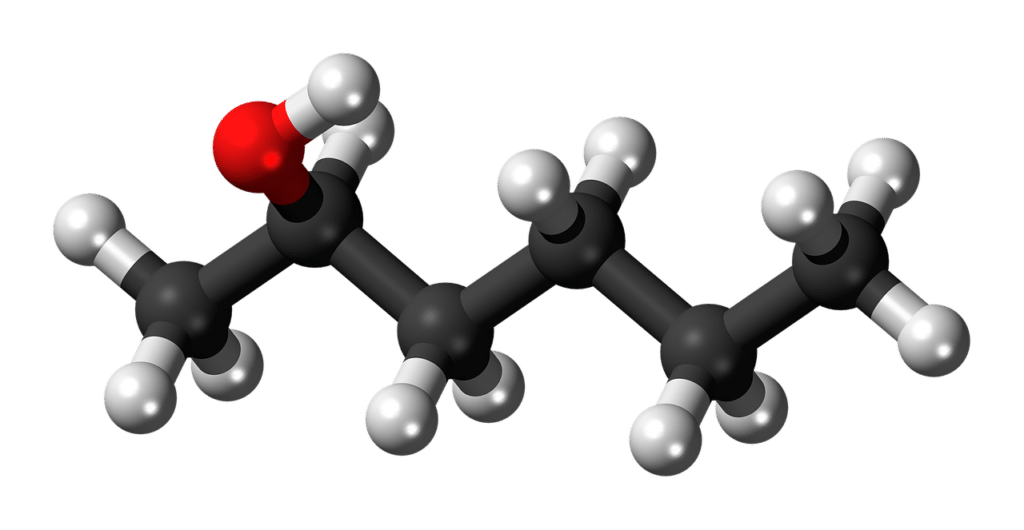How to Get the Best Real Estate Purchase and Sale Agreement in 3 Easy Steps
Home seller real estate purchase and sale agreements are complex legal documents; there are many details and complications you must smooth out before you can sell your house quickly for cash by closing with a cash home buyer. Regardless, if you are looking to understand a “We Buy Houses” unimproved property contract, for sale by owner contract, agent exclusive agreement, house sale contingency, or a simple residential listing agreement, most of the various contract laws in real estate purchase and sale agreements are universal and very similar, if not identical. While some of the specifics of a house purchase contract can vary by state, in general, each variety of property contract contains similar or identical information.
This article has been written with an eye for helping home sellers in any selling situation better understand the complexities of a seller’s contract, otherwise known as a purchase and sale agreement. While real estate contracts may seem intimidating, taking the time to familiarize yourself with the details you’ll encounter is well worth the effort. You should have a full grasp of contracts, or at least a trusted friend who is savvy in real estate to review everything on your behalf before you enter into any agreements. This knowledge will help you feel confident and assist you in getting the best contract terms for your specific seller needs.
Key Takeaways
- When you receive a purchase offer on a home, make sure you fully understand all the conditions specified in the contract.
- The most common contingency clauses will include financing, home inspections, closing costs, and the closing date, among others.
- While “We Buy Houses” contracts will typically contain little to no contingencies, it is important to understand all the issues that may affect your deal, regardless of your chosen selling method.
- If any contingency is not adequately satisfied in the purchase and sale agreement contract, you will have the leverage to walk away from the deal if it is in your best interest to do so as the seller.
1. Understand the Basic Function of a Purchase and Sale Agreement (Standard Real Estate Contract)
A real estate contract is any legally binding agreement that guides a real estate transaction. In real estate, specific contracts are used between two or more parties to facilitate the purchase or exchange of a real estate property. Generally speaking, a home sale contract is not only legally necessary, but it makes common sense to document and write down exactly what the agreement is so that all parties understand and agree to all the terms involved in the transaction.
The Statute of Frauds
- The Statute of Frauds (SOF) is a common law that requires certain types of contracts (in this case a home purchase contract) to:
- Be written down.
- Contain specific details about the arrangement.
This statute’s legislative intent is meant to reduce instances of fraud and situations where the court must take the word of one person over another. So, if a real estate contract is not written out with specific details about the arrangement and signed by all involved parties, it won’t be considered enforceable by a court of law and therefore is null and void.
2. Learn About the Components of a Home Buying Contract
Not only does the home sale agreement have to be in writing, but it must also contain certain sections and subsections necessary to facilitate the transfer of ownership of a property from one party to another in order to be legal and enforceable by courts of law.
The house sale agreement must:
- a) List the names of the buyer and seller, along with any other legally invested parties.
- b) Contain the description of the property. Usually, this involves both the address of the property and its legal description.
- c) Include the purchase price for the property.
- d) Be signed by all the legally invested parties to the sale.
a) Legal Names of the Parties Involved in the Transaction
More specifically, the real estate purchase contract must list out the full legal name of the buyer and seller. Also, if the buyer and seller are being represented by real estate agents, each agent must be listed as well, along with the real estate broker of record and their contact information. Although this may happen in a different section of the contract, the information for the lender and title company or escrow agent should also be listed.
b) Legal Description of the Property
By signing a real estate sales contract, you are agreeing to accept the terms and conditions laid out in the various sections and subsections of the contract. You are also legally asserting that you have certain rights and that you’ll fulfill certain responsibilities agreed upon within the house sale contract. Typically, these responsibilities include an acknowledgment that you intend to move forward with the contract in good faith and that you understand the timeline that has been laid out in the purchase and sale agreement. You will also usually be informed that you have the right to seek guidance from a real estate attorney regarding real estate contract law.
c) The Proposed Purchase Price of the Property
The contract will contain the buyer’s proposed purchase price and any specific details (i.e., approval of loan within a specified period, max interest rate and term, exact financing amount) regarding how the buyer intends to finance the purchase of the property. If financing will not be used to purchase the property, as is typically the case with “cash home buyers” paying in all cash, this information is not needed. Lastly, the home purchase agreement contract will also include details about the buyer’s earnest money deposit.
In real estate, a non-refundable earnest money deposit is a good faith nonrefundable deposit the buyer puts in escrow with the title company. This amount goes toward buying the property. Buyers will often do this to show the seller they’re serious about buying the property, but this is not the only means by which to do so, neither is it necessary in all situations for a seller to understand that the buyer will fulfill their end of the real estate purchase and sale agreement. Notably, that deposit is also used to cover monetary damages to the seller in the event the buyer should decide to breach the contract and walk away from the deal entirely.
d) Real Estate Sales Contract Must be Singed by all Parties to be Legally Binding
This may sound obvious, but in special situations where one of the sellers or buyers of the property for sale is represented by a Power of Attorney (POA) or any similar legally binding situation, the contract will require a representative of any interested party to sign the house sale contract for it to be legally binding. Situations like this can create complications in getting all the necessary signatures on the home purchase agreement and should be considered and accounted for in advance by both the buyers and sellers.
Additional Elements in a Real Estate Sales Contract
A standard agreement for the sale of real estate should include additional details to protect the buyer and seller. This helps ensure the real estate sales contract closes smoothly with the fewest possible number of opportunities for disagreements and/or complications that will hold up the title company closing process.
Additional elements that should appear in a sellers contract include:
- The date of the settlement of the transaction (the date all parties have agreed upon to close the deal at the title company, synonymous with the “closing date”).
- The date the buyer can take physical possession of the property (called a closing date, synonymous with the “settlement date”).
- Fixtures and appliances (a section outlining what items are included in the sale).
- Contingency clauses that address the proper actions and/or sanctions if certain situations arise (for example, if the buyer can’t obtain financing by a specific date, a contingency clause could allow the seller to back out of the deal).
- Arrangement as to who pays closing costs on the deal (agent fees, taxes, etc.).
- Addendums necessary to make any changes to the original real estate contract.
- A guarantee that the seller possesses a clear title to the property.
- A clause that allows the buyer to make inspections of the property for damage, pest infestations, etc.
- The names of the escrow and closing agents and/or the title company phone number and address.
- A nonrefundable earnest money deposit (money that shows the buyer is serious about buying the property).
- Purchase price and terms (the core of a contract to sell real estate).
- If the house sale agreement is supported by an all-cash offer (typically offered by cash home buyers).
- A clause sometimes referred to as a “liquidated damages clause” requires the seller to pay the buyer a specified amount of money for each day that the buyer has to delay moving into the house or taking physical possession of the property.
Closing and Possession Dates
The home purchase agreement should contain specific details about the closing date and physical possession date. The closing date does not necessarily have to be the same as the possession date. For example, in some cases, the purchase and sale agreement can specifically arrange that the seller will rent the home back from the buyer for a pre-determined and agreed upon period and the buyer will take physical possession of the home on a later date.
In the case of a situation where you sell your house fast for cash, the “We Buy Houses” company and/or cash home buyer will set up a special arrangement providing a grace period forthe seller to move items they want to keep from the property. Top rated “sell my house fast” companies will even put additional money into escrow at the title company to cover hotel rooms and board for the seller, to be paid out upon closing. Savvy cash home buyers are known for arranging convenient situations like this to help a seller overcome challenges that would normally prevent them from selling the property.
Items Included in the Sale (Fixtures and Appliances)
The real estate purchase contract, if drawn up appropriately, will also include a subsection that specifically defines who keeps what, specifically outlining what, if any, personal property and/or fixtures and appliances are included in the sale. Bear in mind that it’s legally possible for the buyer and seller to negotiate for any piece of personal property to be left behind for the buyer or taken by the seller
Do not rely on a verbal agreement and do not assume anything. The contract must specify any additions that are negotiated, such as fixtures and appliances that are to be included in the purchase. For example, in the “We Buy Houses” business it is a common practice for the cash home buyer and seller to agree on the seller taking whatever personal items they want, while leaving the rest for the buyer to dispose of. Typically, the seller doesn’t have to hassle with cleaning or repairing anything prior to the buyer taking possession of the property. Generally, the seller leaves the major appliances like the stove, washing machine, and refrigerator, but even this is negotiable and should be specifically addressed in the real estate purchase and sale agreement.
Contingencies
In a real estate purchase agreement, a contingency clause specifies a particular event that must occur. This insures that the transaction maintains a legally binding status. If the contingencies in the real estate purchase contract cannot be reasonably satisfied, the buyer or seller has the option of walking away from the deal without sustaining any monetary damages. By that, we mean they don’t have to give up their nonrefundable earnest money deposit. in the event that (the buyer) decides to walk away from the real estate deal, because a contingency was left unsatisfied. And vice versa for the seller.
Common Real Estate Purchase Agreement Contingencies
- Financing contingency: The financing contingency mandates that the buyer must be able to obtain a mortgage, or bank, or hard money loan to buy the property. If the buyer isn’t approved for the lending, they will have the legal leverage to walk away from the deal if this contingency is elected in the purchase and sale agreement.
- Inspection contingency: An inspection contingency allows the buyer to perform specific inspections on the property prior to closing the deal. If this contingency is elected, the buyer and the seller must negotiate mutually agreeable terms on any recommended repairs or remediation to maintain a legally binding home sale contract. This contingency is typically waived by cash home buyers but not always. Depending on each property’s unique circumstance, it may potentially be elected.
- Home sale contingency: If the buyer must sell their current home to buy a new one, they can elect a home sale contingency in the contract. The home sale contingency gives the buyer a specified amount of time to find a buyer for their current home. If they fail to find a buyer, this contingency allows them to walk away from the deal without diminished monetary damages. This clause is never elected for legitimate cash house buyers because they are purchasing the property as a non-owner-occupied real estate investment.
Closing Costs Arrangements
Closing costs are typically expenses above the property price that both buyers and sellers pay to close a real estate deal. A house contract agreement will include important information about closing costs. It will specifically address which closing costs are part of the transaction, as well as who is responsible for paying them. It will outline whether the seller is helping the buyer cover some or all of the sellers closing costs. When a buyer puts in a concession for a seller assist, they are asking the seller to cover some of these additional closing expenses. Although it seems odd that a seller would pay a fee to sell a house, this is very common. Sometimes a buyer may also be willing to pay extra for the property if the seller agrees to pay more for the closing costs. It all comes down to how motivated each party is and how well they negotiate.
When the closing costs involve reputable cash house buyers, there typically will be no closing costs for the seller. Most of the time when utilities, fees, taxes, etc. are owed on a property, these expenses will also be paid by a professional cash home buyer, but this is determined on a case-by-case basis by the unique circumstances involved in every deal.
Addendums
Once the offer has been accepted, the purchase and sale agreement will also include any necessary addendums. An addendum is an additional form, separate but legally binding, to the original real estate sales contract. This is used to make any necessary changes to the original real estate purchase contract. For example, if the buyer makes a counteroffer at a lower purchase price (after a valid inspection contingency). Assuming the seller accepts, an addendum would be used to reduce the purchase price for the original amount of the initial home purchase agreement.
3. Understand the Bottom Line
It’s always a good idea to educate yourself about the key components of a real estate purchase agreement. And to be your own best advocate, never take anyone’s word or opinion for anything. When selling a home, its necessary to not only understand the terms and conditions of the purchase and sale agreement but to be ready to walk away from a bad deal if any of the contingencies put forth in your contract are not reasonably met and the buyer/seller is unable to re-negotiate reasonable alterative addendums to the original agreement.
About Justin Mitchell
Justin is the owner and operator of “We Buy Houses In WDVM.” He is experienced at finding solutions for people who are in the market to sell their homes or investment property quickly for any reason.
Justin has experience with all types of buying and selling scenarios and understands how to make every transaction simple and stress-free. We are certain that Justin can find a win-win solution for you, whether it be a quick cash purchase or another type of creative selling solution.
Justin is a legitimate house buyer that has a 5-star rating on Google Reviews. Visit his Beat Any Offer page to see why he believes in presenting sellers with more than just opinions of his satisfied customers so that you can understand why facts matter more than opinions when it comes to creative ways to sell a house fast.
Table of Contents









